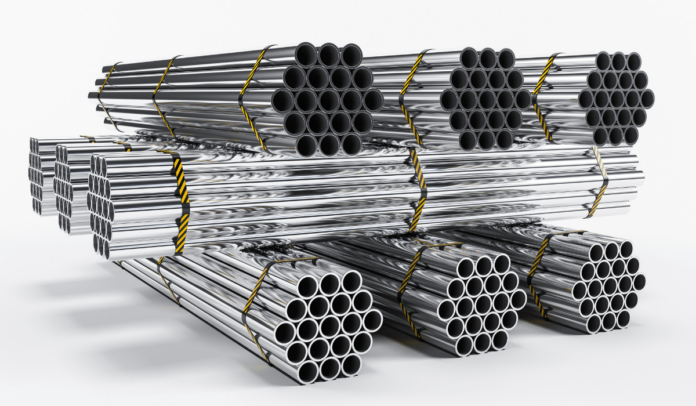ISLAMABAD: As the government deliberates tariff rationalization under its upcoming industrial policy, Pakistan’s key manufacturing sectors—steel and ceramics—have sounded the alarm over potential plant closures, mass layoffs, and accelerated de-industrialisation if immediate safeguards are not enacted.
In high-stakes meetings held this week with Finance Minister Muhammad Aurangzeb and Special Assistant to the Prime Minister (SAPM) on Industries and Production Haroon Akhtar Khan, the Pakistan Association of Large Steel Producers (PALSP) voiced strong opposition to proposed cuts in import duties on steel products.
“A tariff reduction at this point would open the floodgates to cheap foreign steel and lead to the permanent closure of local mills,” warned Abbas Akberali, Patron-in-Chief of PALSP.
With more than 60% of local steel units already shut down and others running at minimal capacity, PALSP has demanded at least 50% tariff protection on imports of both finished and semi-finished steel products. The group emphasized that Pakistan’s steel industry—consuming 4 billion kWh of electricity annually and contributing over Rs200 billion in taxes—is being crippled by escalating energy, gas, and financing costs.
PALSP leaders, including Chairman Javaid Iqbal and Secretary General Wajid Bukhari, argued that any tariff rationalization must be linked to a reduction in the cost of doing business. They also cautioned that lower tariffs could worsen the circular debt crisis by increasing idle capacity payments for electricity as steel plants shut down.
SAPM Haroon Akhtar acknowledged the industry’s concerns, assuring that the government is committed to protecting domestic manufacturers. “No industry will be allowed to shut down,” he said, noting that long-term sustainability policies are being developed.
Similar concerns were raised by the ceramic tile sector during a separate meeting with SAPM Haroon Akhtar, which included representatives from 10 Pakistani and 4 Chinese tile manufacturers. The industry urged the government to maintain tariff protections to stay competitive against rising imports.
The SAPM praised the sector’s contribution to industrial development and directed manufacturers to submit a detailed report quantifying their cost disadvantages. He also announced the creation of a joint committee, comprising industry representatives and the Engineering Development Board, to present recommendations by Thursday.
“We are strongly defending the case for local industries at the National Tariff Policy Board,” Akhtar said.
While Finance Minister Aurangzeb acknowledged the industry’s excessive energy costs and the impact of global tariff conflicts, he cautioned against blanket protectionist measures. PALSP, however, urged him to defer any tariff cuts for at least one year, allowing domestic conditions to stabilize.
Both the steel and ceramic sectors warned that premature liberalization could lead to economic setbacks, including rising unemployment, import surges, and further strain on the country’s fragile economic recovery.




